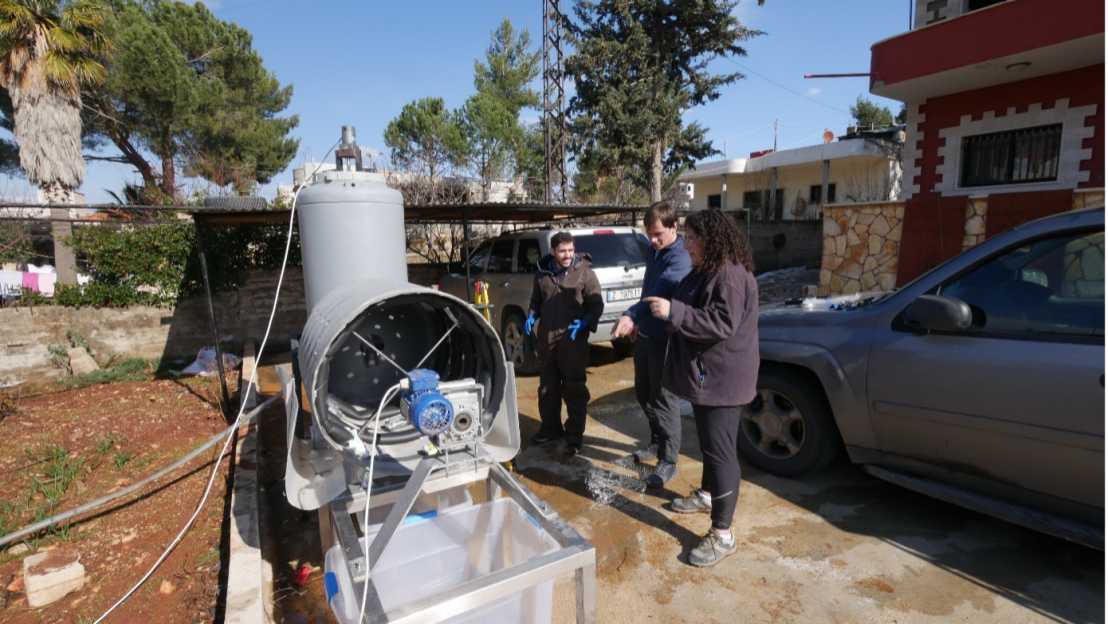Seed Project: Real-time monitoring for faecal sludge dewatering in Lebanon
The sanitation needs of one-third of the world’s population are met by non-sewered sanitation. With an increasing awareness of the need for non-sewered sanitation, technologies for treatment of faecal sludge that accumulates in onsite is becoming important worldwide. One of the most important treatment steps is dewatering, as faecal sludge contains more than 95% liquid. However, established technologies for solid-liquid separation of faecal sludge have a large footprint and are time-consuming processes.The MEWS (Management of Excreta, Wastewater and Sludge) group at Sandec, Eawag (www.sandec.ch/mews) has conducted research on chemically-enhanced dewatering (addition of conditioners) and has shown that this is a promising option to optimize dewatering. However, it cannot yet be scaled up, as robust process control is lacking.
To fill this gap, we are currently testing different sensors for the prediction and control of conditioner dosage in the laboratory at Eawag. We are focussing on total suspened solids (TSS) sensors, as TSS is difficult to measure in continuous operation and it has a great influence on conditioner dosing. Prior to being able to implement this solution, rigorous field-testing is needed. MEWS is collaborating with CubeX, a Lebanese start-up who are developing a mobile faecal sludge dewatering truck. The CubeX prototype is still missing a reliable and robust process control system to be able to operate the dewatering truck as a financially viable solution. In the scope of this project, we will validate the use of TSS sensors for the optimal dosage of conditioners in order to scale up this solution for faecal sludge management in general, which is the missing step for a project on full-scale automated system for dewatering using conditioners.
Project Partners: external page CubeX (Lebanon)
